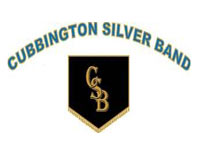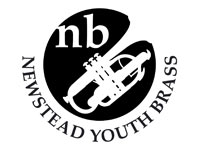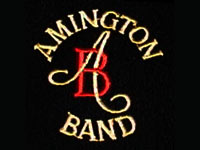2007 Midlands Regional Championship - Fourth Section retrospective
16-Mar-2007The Seasons was enjoyed by all the bands here and in return they provided excellent entertainment for the judges.
Steve Pritchard–Jones is a man with an intimate knowledge of Philip Wilby's 'The Seasons'. Having presided over the Fourth Section in Yorkshire alongside David Read just the previous week, he and new co-adjudicator David Horsfield found themselves in a spring like Burton on Trent with a potentially far more difficult task on their hands; a little matter of twelve bands more difficult to be precise.
Even with the withdrawal of Welbeck Estates, it was still a colossal field of 23 bands that greeted the adjudicators as they took their place in the box; a box that was clothed in what looked uncannily like a pair of curtains from my late Granny's Victorian two up two down. It was difficult not to feel thankful that they were able to fight their way through the curtains to emerge blinking in the sudden light and take whatever relief they needed on two separate occasions during the marathon six and a half hour duration of the contest.
Signs at the entrance of the Belvedere Park Club proudly proclaimed that the contest room was now fitted with a sound limiting device, evident from the dancing green and red lights at the side of the stage that provided visual accompaniment to each of the performances throughout the day. Not that any of the competitors were in a mood to be limited though, a fact borne out by a good number of bands whose decibel levels seemed to send the red lights into a state of high alert. Fortunate then that the performances were far too entertaining to let such external distractions detract from what proved to be a thoroughly enthralling day of music making.
Fourth Section bands have had a pretty good time of it with their regional test pieces for the last couple of years. Last year Alan Fernie's 'Anglian Dances' was a great choice whilst this year Philip Wilby's equally entertaining 'The Seasons' has so far proved not only a fine test of the band's musical and technical abilities, but also an enjoyable experience for those listening in the hall.
The impressive standard of playing in the Belvedere Park Club was such that every band managed to extract something from the score and in the last movement in particular, the large majority of bands turned in a very reasonable show. As with the previous week in Yorkshire though, it was always going to be the first two movements that sifted the winners from the losers; a point that was borne out again in Burton.
It was some time before a band truly got to grips with those opening two movements but when the eventual winners, Cubbington Silver, took to the stage at number nine following the first comfort break for the adjudicators, it was patently obvious that the audience was hearing something striking.  Paul Johnson clearly knew what he wanted from both the music and his players and it was clear from the outset that considerable thought and preparation had gone into the detail. Phrasing and melodic line were scrupulously observed and although the first movement was not completely blemish free (no band managed that feat on the day), intonation issues were kept firmly under control and there was real pathos and emotion in the playing, particularly from the flugel solo on.
Paul Johnson clearly knew what he wanted from both the music and his players and it was clear from the outset that considerable thought and preparation had gone into the detail. Phrasing and melodic line were scrupulously observed and although the first movement was not completely blemish free (no band managed that feat on the day), intonation issues were kept firmly under control and there was real pathos and emotion in the playing, particularly from the flugel solo on.
A finely judged tempo was the key to the central Spring Waltz and the band settled into the style of the music well with an impressively full horn sound in the solo. Crucially there was no over blowing in High Summer and whilst the band was by no means the loudest of the day, many others could have learnt from Cubbington's controlled approach to the dynamics. It was a fine performance and one that fully deserved to endure in the adjudicator's minds until the conclusion.
Newstead Youth were aided by tremendous support in the hall and turned in an impressive performance that guided the band into our predicted runners up slot whilst earning them a well deserved place in the final.  A middle order draw of fifteen was a good one for the band and not unlike a few others on the day, this was a performance that grew in stature as it progressed. Playing with a bass short, there were a few individual nerves on display in the opening movement although the flugel did well and the band managed to create a sense of atmosphere that pervaded throughout. Again there was a touch of caution in the Waltz although by the time the band got to High Summer, they were absolutely flying. If the contest had been on the third movement alone Newstead would have walked away as winners but as it was they must have been very content with a highly creditable second place.
A middle order draw of fifteen was a good one for the band and not unlike a few others on the day, this was a performance that grew in stature as it progressed. Playing with a bass short, there were a few individual nerves on display in the opening movement although the flugel did well and the band managed to create a sense of atmosphere that pervaded throughout. Again there was a touch of caution in the Waltz although by the time the band got to High Summer, they were absolutely flying. If the contest had been on the third movement alone Newstead would have walked away as winners but as it was they must have been very content with a highly creditable second place.
 Our pre-contest favourites Amington must have cursed their early draw of four and it possibly accounted for the fact that the band took a little while to settle in the opening movement. There were good sounds from the outset though with a wide, yet carefully observed dynamic range and good individual contributions.
Our pre-contest favourites Amington must have cursed their early draw of four and it possibly accounted for the fact that the band took a little while to settle in the opening movement. There were good sounds from the outset though with a wide, yet carefully observed dynamic range and good individual contributions.
The solo horn settled nicely into the opening solo of the waltz after the first few notes and although the music did not always quite flow perfectly it was clear that band's confidence was growing.
Like Cubbington, Amington produced a solid but never forced sound in High Summer with clear articulation, balance and a great sense of swagger. The band might have been a little disappointed not to have walked away the winners but that is not going to reduce the band's chances of a result in Harrogate come the Autumn.
With the qualifiers decided then, Steve Pritchard-Jones and David Horsfield had the unenviable task of getting to grips with the remaining placings. Rolls Royce (Derby) turned in a strong performance from the penultimate draw of twenty two, and whilst there were a number of bands vying for the top six (we had Rolls Royce in sixth spot) there was much to admire in their playing, with Graham Cardwell ably capturing the flow of the music from his players and some stylish individual contributions, notably from the solo horn in the Spring Waltz.
Playing off number seven, our dark horses Rushden Town will have been delighted with their fifth position, a major improvement on last year's eleventh.
Things were a little heavy dynamically in the opening movement but there were some attractive musical touches and the lilt of the central waltz was shaped with some style by conductor Phil Lewsey. Whilst High Summer was not the most exciting of the day the playing was always both safe and competent and a finish around the top six was always on the cards for us.
It was Trentham Brass that completed the top six, the last band of the day and playing to a by then pretty full hall. Trentham's was a performance that started well before things became a touch tentative, although the climax of the first movement was well judged and the players succeeded in creating a sense of the music's atmosphere. The final March was lively whilst just losing its rhythmic clarity on occasions but it was a performance with much to commend that brought the day's contesting to a positive conclusion.
Taking us through to tenth place were Thoresby Colliery Youth, Bestwood Welfare Black Diamonds, Burbage (Buxton) and Market Rasen RPC.
Thoresby Youth turned in a gem of a performance that featured some excellent solo playing and a maturity beyond the years of many of the band's players. They surely can be proud of their playing and frankly we were surprised to see them outside of the top six. Little wonder that ex Thoresby man Stan Lippeatt (who was listening in the hall for a good part of the day) looked so pleased.
Following Cubbington on stage Bestwood Welfare had clearly been well prepared by Brian Draper and of all the day's performances, the band were one of the truest to the detail of the score with well observed dynamics, good poise in the waltz and a measured approach to the March.
Burbage (Buxton) provided one of the earliest markers of the day with a strong performance off a number two draw. We had them higher than ninth and a later draw would possibly have seen a slightly more favourable position for them. Market Rasen were our prediction for the third qualification place although on the day, despite some polished playing when things got going, it didn't quite happen for them in the opening movement with just a few too many ragged edges.
It was a measure of the strength in depth in this section that we were still hearing very creditable performances in the middle order of the results. The eleventh to fifteenth places were taken by Ratby Co-operative Mid, Fairfield (Buxton), Croft Silver, Whitwell and Cresswell Colliery, with all offering a good deal to enjoy. Ratby in particular could easily have seen a higher finish whilst the other bands here, although sometimes held back by occasionally wavering intonation or ragged ensemble all got to grips with the piece and gave performances that more than did justice to Philip Wilby's music.
From here the standard did begin to progressively fall away although the remaining bands all succeeded in drawing something from the score. Corby Silver, Dunchurch and Ireland Colliery Chesterfield gave readings that took time to settle and nerves clearly played a part in the more exposed passages whilst spirit nearly always recovered in the final March of High Summer.
For Swineshead Silver, Shipston Town, Melton, Hathern "B" and Ilkeston Brass life was not always very easy but they will no doubt be back to fight another day at next year's contest and the hope of living the Finals dream once again.
So it was that the triumphant Cubbington Silver Band will be accompanied by Newstead Youth and Amington in their journey to Harrogate later in the year; all worthy carriers of the Midland torch. A long but immensely satisfying day's contesting was brought to a close and Steve Pritchard-Jones set off for a well earned rest before doing it all again for the third successive weekend in Stevenage when he will sit in sole deliberation over another twenty three performances of The Seasons. It's a hard life is an adjudicator's!
Christopher Thomas.















